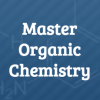Learning about reactions, or how to get from one molecule to another, is going to be absolutely essential for the rest of your organic chemistry career. We’re going to start out by just learning a couple of the basic ones that affect alkenes. However, this list will eventually expand to include a ton of reactions that you can use to get from almost any simple molecule to another.
For the most part, learning these reactions is straight memorization—you just need to put the time in and learn them all. However, make sure you know how to use them, especially when we get to synthesis, or the creation of molecules from essentially scratch.
There are a couple topics involving alkene reactions that are pretty important. The first involves reaction mechanisms. Sometimes, it is not enough to simply know that A+B gives C. Occasionally you will need to know exactly how this reaction occurs, and that’s where reaction mechanisms come into play. These are detailed diagrams using arrows that show the movement of electrons during reactions in order to explain how a reaction occurs.
The first couple of reactions you’ll need to learn are Halogenation, Oxymercuration, Oxidation/Reduction reactions, and Ozonolysis. (Please note: Once again, this is based on the Rutgers curriculum. Some schools may require different mechanisms.) Make sure to not only know what they do, but how they do it. These will be used for the rest of the course, so make sure you are comfortable with each.







